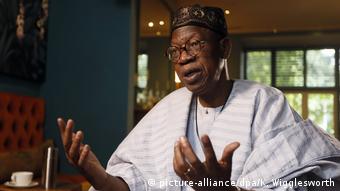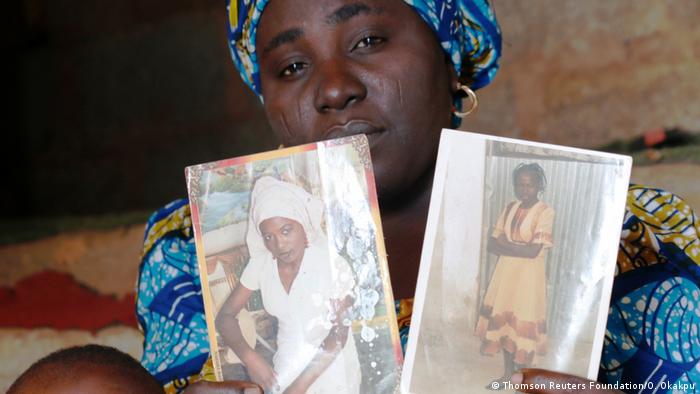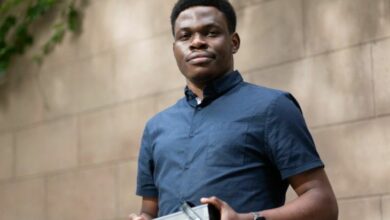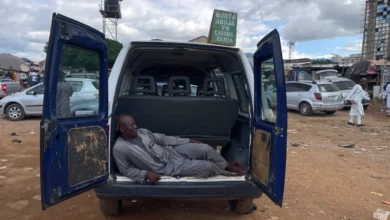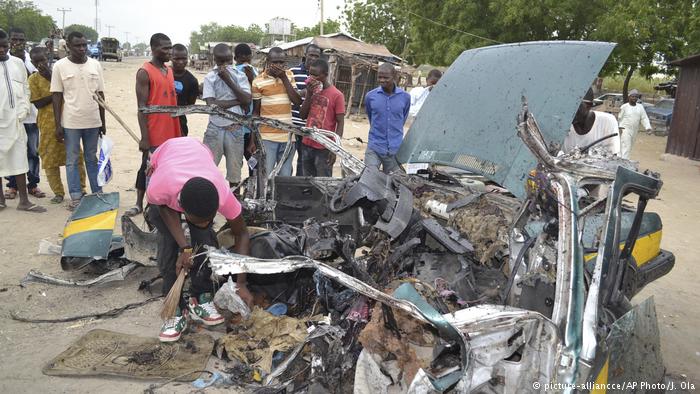
The individuals have received prison sentences, but the government has refused to divulge other details, such as the names of the accused or charges faced. The mass trials have drawn criticism for a lack of transparency.
A Nigerian court on Friday sentenced 45 people to prison sentences after it ruled they had been members of the terror organization Boko Haram. The convicted individuals were part of closed-door mass trials that began earlier this week and in which 1,669 people stand accused of membership in the Islamist organization, which has been carrying out deadly attacks and kidnappings for eight years.
Read more: Trial of Boko Haram suspects in Nigeria poses legal nightmare
Nigeria’s Information Minister Lai Mohammed said Friday that the 45 had been sentenced to between three and 31 years in prison. However, he provided no additional information, such as names and ages of those convicted, or where they were arrested and what specific charges they had faced.
Mohammed said only that the 45 were sentenced “following the conclusion of the first phase of the trial [in] which 575 Boko Haram suspects were arraigned.”
Of those arraigned, 468 were discharged with orders to undergo deradicalization and rehabilitation programs. Another 34 cases were thrown out, leaving 28 to face trial in the central cities of Abuja or Minna.
In total, 1,669 suspects had been brought to the Kainji military barracks in the central state of Niger to face trial. The suspects will be tried either at four civilian courts that have been set up at Kainji or at a different military base in the northeastern city of Maiduguri.
The mass trials have drawn a mixture of cautious optimism and legal criticism.
Onlookers have praised the Nigerian government for taking judicial action against the terror organization, but many have also criticized the trials’ mass size and heavy secrecy, as well as the detention conditions of the accused.
Individuals facing trial are being held at military facilities that are overcrowded and often lack basic sanitary conditions. Human rights groups have accused the Nigerian government of detaining people without reasonable suspicion and denying them access to lawyers.
In addition, international organizations have voiced concern over the lack of transparency around the trials, where media and public observers are barred from entering.
“It is essential that Boko Haram insurgents are prosecuted and, if found guilty, held to account for killings and abuses they may have perpetrated, and that victims are able to receive justice,” said Rupert Colville, the UN human rights spokesperson.
However, he added that “any restrictions on the public nature of a trial, including for the protection of national security, must be both necessary and proportionate.”
Colville also pointed out that article 14 of the International Covenant on Civil and Political Rights entitles all defendants to a fair and public hearing. Nigeria is one of 74 nations that have signed the treaty.
Boko Haram has killed more than 20,000 people over the past eight years and displaced at least 2.2 million people, primarily from the northeastern corner of the country on the border to Chad.
In the past months, the Islamist terror group has carried out a series of deadly suicide bombings, often with women or children as the bombers. In May 2015, the group released 82 Chibok schoolgirls whom it had kidnapped three years prior.


